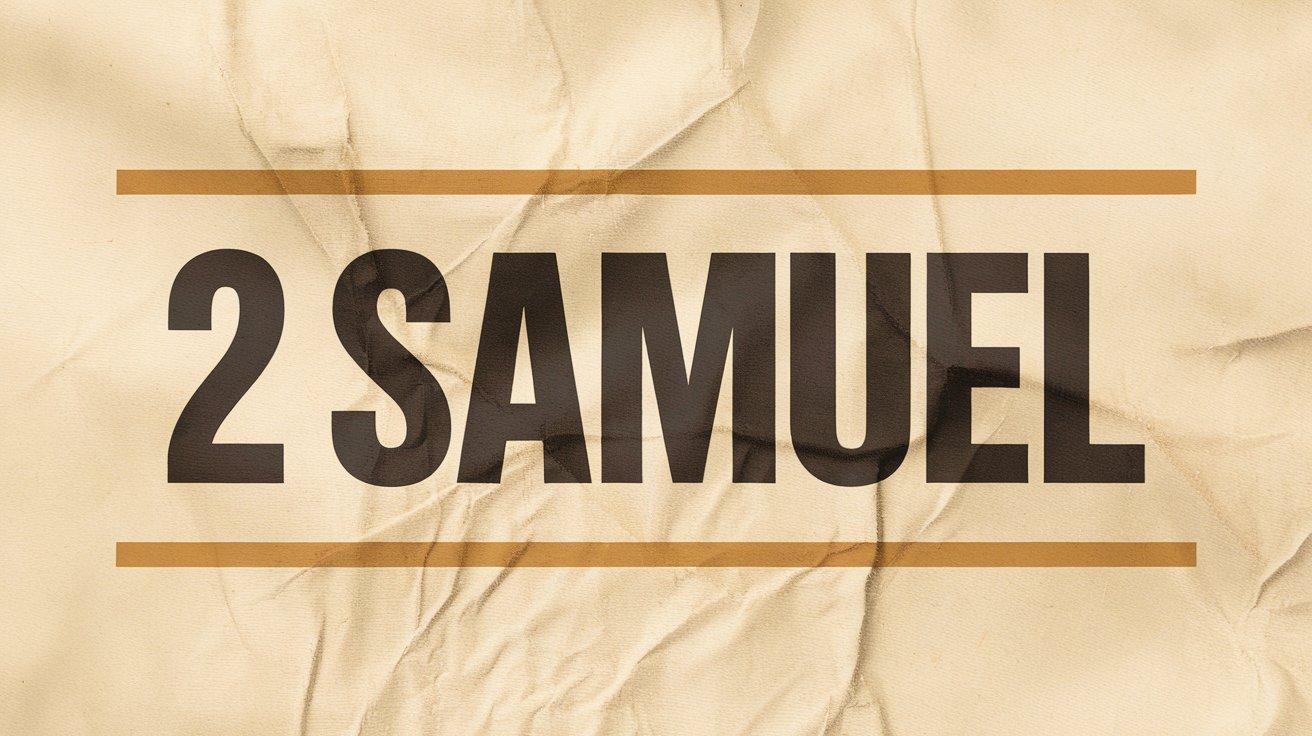When Good Intentions Go Horribly Wrong
What’s 2 Samuel 10 about?
David tries to show kindness to a grieving king, but his good intentions are catastrophically misinterpreted, leading to an unnecessary war that reveals how quickly diplomacy can unravel when pride and suspicion take center stage.
The Full Context
2 Samuel 10 sits right in the middle of David’s golden years as king. He’s consolidated power, established Jerusalem as his capital, and brought the ark home. The narrative writer is showing us David at his diplomatic best – but also revealing how even well-intentioned gestures can explode when they collide with cultural misunderstanding and political paranoia.
This chapter serves as a fascinating case study in ancient Near Eastern diplomacy gone wrong. It’s also setting up the military context that will lead directly into David’s infamous encounter with Bathsheba in chapter 11 – Joab and the army are off fighting the Ammonites while David stays home. The theological thread running through this passage explores how human relationships fracture even when intentions are good, and how pride can turn potential allies into bitter enemies.
What the Ancient Words Tell Us
The Hebrew word chesed appears right at the beginning when David decides to “show kindness” to Hanun. This isn’t just being nice – chesed is covenant loyalty, the kind of steadfast love that binds people together through thick and thin. David genuinely wants to honor the memory of Hanun’s father Nahash, who apparently showed David kindness during his years as a fugitive.
But here’s where it gets interesting. When the Ammonite advisors convince Hanun that David’s envoys are spies, they use the verb chaphar – to search out, to dig. They’re suggesting David’s men came to “search out” the city, implying military reconnaissance. The irony is thick: David sends messengers of chesed, but they’re received as agents of espionage.
Grammar Geeks
The Hebrew verb for “humiliated” (wayyakel) in verse 5 literally means “to be light” or “insignificant.” Having half your beard shaved wasn’t just embarrassing – it was a public declaration that you were worthless, stripped of your dignity and social standing.
What Would the Original Audience Have Heard?
Ancient Near Eastern readers would have immediately recognized this as a diplomatic disaster of epic proportions. In a world where honor and shame determined everything, publicly humiliating foreign ambassadors was essentially a declaration of war. Hanun might as well have slapped David in the face.
The beard-shaving detail would have made listeners wince. In ancient Semitic culture, a man’s beard was sacred – a symbol of wisdom, maturity, and divine blessing. Cutting someone’s garment at the buttocks was equally degrading, exposing them to public ridicule. David’s response – telling the men to stay in Jericho until their beards grew back – shows his understanding that they couldn’t show their faces in public.
But here’s what’s fascinating: the original audience would have also heard echoes of other stories. Nahash, the Ammonite king who died, was the same brutal ruler who threatened to gouge out the right eyes of the people of Jabesh-gilead in 1 Samuel 11. Yet somehow, this violent king had shown David kindness during his wilderness years. It’s a reminder that even enemies can surprise you with unexpected grace.
Did You Know?
The Ammonites were descendants of Lot through his younger daughter, making them distant relatives of the Israelites. This family connection makes the diplomatic breakdown even more tragic – it’s essentially cousins going to war over a misunderstanding.
Wrestling with the Text
Here’s something that puzzles me: Why didn’t David’s envoys explain their mission more clearly? When the Ammonites accused them of being spies, why didn’t they produce evidence of their diplomatic status? Ancient diplomacy had protocols – letters of credence, gifts, formal declarations of intent.
Maybe that’s the point. Sometimes miscommunication happens so quickly that there’s no time for explanations. The Ammonite advisors whispered their suspicions, Hanun acted impulsively, and suddenly diplomatic messengers became prisoners of war.
The text also raises questions about David’s motives. Was his desire to show chesed purely altruistic? Or was there a political calculation involved? Maintaining good relationships with neighboring kingdoms was smart foreign policy. The narrator doesn’t give us David’s inner thoughts, leaving us to wrestle with the complexity of human motivation.
Wait, That’s Strange…
Notice that David doesn’t immediately declare war after his ambassadors are humiliated. The Ammonites are the ones who hire Syrian mercenaries and prepare for battle. David seems genuinely surprised by the escalation – another hint that his original intentions were peaceful.
How This Changes Everything
This chapter reveals something profound about the nature of human relationships and misunderstanding. David’s attempt at chesed – covenant kindness – gets twisted into perceived deception. It’s a powerful reminder that good intentions don’t always lead to good outcomes, especially when filtered through suspicion and cultural barriers.
The story also shows us David’s leadership style. When his men are humiliated, he doesn’t abandon them or demand immediate retaliation. He tells them to wait in Jericho until they can return with dignity restored. It’s a small but telling detail about a king who understands that honor matters.
But perhaps most significantly, this chapter sets up the moral backdrop for what’s coming. David is about to face his greatest personal failure with Bathsheba, but here we see him at his diplomatic best – patient, kind, honoring the memory of a former enemy who showed him grace. The contrast makes his later actions all the more jarring.
“Sometimes the road to conflict is paved with the best of intentions – but that doesn’t make the destination any less devastating.”
Key Takeaway
Even when our hearts are right and our intentions pure, miscommunication and cultural blindness can turn potential friendships into unnecessary conflicts. The call to chesed – loyal love – remains, but it must be coupled with wisdom, patience, and the humility to keep extending grace even when it’s misunderstood.
Further Reading
Internal Links:
External Scholarly Resources:


